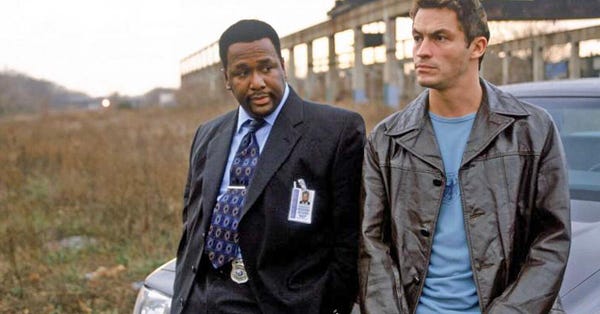It is a sad day for us history nerds
Perhaps Trump was floating Stefanik’s name for vice president
By Ken Tingley
If you love history, then you probably already know we lost a giant Monday.
David McCullough, twice a winner of a Pulitzer Prize for his biographies of John Adams and Harry Truman, passed away at the age of 89. When a writer’s voice is lost, it is a sad day.
Thirty years ago, I was looking to get back into reading books. For too long my life had been wrapped up with the day-to-day publication of the daily newspaper. I wanted to read nonfiction, but more importantly, I wanted material that would help me understand life and the world around me.
It was 1992 and McCullough had just published his bio on Harry Truman. It won the Pulitzer Prize the next year. I might have seen a McCullough interview on television, and what always came through in his interviews was his passion for American history. I have similar passion.
I didn’t know the book was over a thousand pages, but it took me on a journey that took months to complete and a 30-year relationship with the author.
I learned about John Adams, the American Revolution (“1776”), the building of the Brooklyn Bridge (“The Great Bridge”) and The Wright Brothers. I loved them all.
It led to trips to New York to walk the Brooklyn Bridge, Quincy, Massachusetts to see Adams’ house and final resting place and Michigan to see the Wright Brothers bicycle shop - it had been moved from their home in Dayton, Ohio.
During a “60 Minutes” segment years ago, McCullough took his interviewer up the ladder that led to the steeple in the Old North Church because he wanted to walk the same path as the many who hung the lanterns to warn the British were coming.
When he was writing “Truman,” McCullough took long walks each evening because that was what Truman did.
When he writing about Washington Roebling, the engineer who supervised the building of the Brooklyn Bridge, he grew a beard because Roebling had a beard.
His research was voluminous - he read all of John and Abigail Adams’ correspondence - until he felt like he knew his subjects intimately.
It came through in his writing because we eventually felt like we knew his subjects too.
The New York Times obituary quoted McCullough this way:
“The reward of the work has always been the work itself, and more so the longer I’ve been at it. The days are never long enough, and I’ve kept the most interesting company imaginable with people long gone.”
For those of us who appreciate history and the writing, we thank David McCullough for bringing us along for the ride and leaving a long and lasting legacy.
Big city life
For the past three days, I’ve been exploring New Orleans. It is a gritty city, hot and uncomfortable at this time of year and when it rains it smells like a swamp. I’ve stayed away from Bourbon Street and and its legendary debauchery and stuck to the Warehouse District and riverfront areas.
My accommodations are in the Warehouse District near the nationally acclaimed World War II Museum where my son now works.
The closing on his condo has hit one snag after another the past week and I’m not impressed at how they do things here in New Orleans. We complain about lawyers a lot in the northeast, but they keep things moving smoothly. So on Monday, I found myself looking at apartments, just in case the current deal falls through.
The Garden District is separated from the Warehouse District by an interstate highway. Underneath the highway is a tent city filled with homeless people. As I walked by on Monday, I saw the type of life we don’t see in the North Country. Was it the swamp or the people I smelled?
A firetruck had pulled up and the EMTs were attending to someone inside one of the tents. A younger woman outside seemed agitated. She didn’t have many teeth. At the intersection, two firemen were imploring an older man in a wheelchair to get out of the middle of the intersection so he wouldn’t be hit by a car. He had positioned himself between the two lanes to improve his chances panhandling.
The firemen eventually gave up and the man went about his business.
It was a reminder that the community we live in and the lives most of us live are charmed. It was hard to believe this was the United States of America.
Stefanik in the toilet
New York Times reporter Maggie Haberman had previously reported that President Donald Trump had the habit of flushing White House documents in the toilet, which was a violation of the Presidential Records Act.
Trump’s people denied it was true. So did Trump.
But on Monday, Haberman produced photos she had been given of some of those documents at the bottom of the toilet bowl. One of the scraps of paper at the bottom of the toilet shows the name “Stefanik” written in black Sharpie.
It raised the question of whether we should be proud or appalled that our congresswoman name ended up in Donald Trump’s toilet.
Name-calling game
Rep. Elise Stefanik’s opponent Matt Castelli has decided to play the same type war of words she so often employs on social media. In a press release on Tuesday, it starts, “In a response to a statement by far fight extremist Congresswoman Elise Stefanik…”
Stefanik’s people have been calling her opponents “far left extremists” for years.






In regards to Elise's name in the toilet, maybe that's what trump REALLY thinks of her! I will do my best to promote that idea. 😊😊
Fascist is a much more efficient way of saying far right extremist.